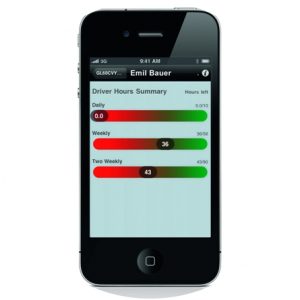Drivers Hours
There are strict rules governing the amount of driving hours allowed per week for employers. If you drive a goods vehicle or a passenger-carrying vehicle, you must follow rules on how many hours you can drive as well as how long breaks should be. This is for the safety of yourself and other drivers, a tachograph is the best way to record driving hours in a working period. The rules are different depending on your journey. EU & AETR rules and hours are different to GB domestic drivers’ hours.
GB Domestic Rules
The GB domestic drivers’ hours rules apply to passenger-carrying vehicles and good vehicles that don’t have to follow EU rules. A fixed working week for driver’s hours is 00:00 hours on a Monday to 24:00 hours the next Sunday.
Goods Vehicles
Duty time is only the time spent working for a company. If you are self-employed then duty time is any time that you spend driving the vehicle, working on the vehicle or on its load. You must not drive more than 10 hours in a day on a public road or off-road if not during duty time.
Off-road driving counts as duty time if it is for:
- Agriculture
- Quarrying
- Forestry
- Building work
- Civil engineering
Daily Limits
You must not be on duty for more than 11 hours in a working day. This limit only applies for any days that you didn’t drive. Ensuring that all of your hours are recorded on an analogue or digital tachograph
Passenger-Carrying Vehicles
If you work as a driver for a company then duty time is any time spent working. If you’re self-employed then duty time is only time that you spend working on the vehicle, its load or driving the vehicle.
Daily Limits
You must take a break of at least 30 minutes after 5 hours and 30 minutes of driving ensuring you have eaten and that you stay hydrated. Alternatively, within a period of 8 hours 30 minutes you must take at least 45 minutes in breaks.
You must also have a break of at least 30 minutes at the end of this period, unless it is the end of the working day.
You must not work any longer than 16 hours between the times of starting and finishing work, including non-driving duties.
You must also take a rest of 10 hours before your first duty and immediately after your last duty in a working week. Every 2 weeks you must also ensure that you take at least one period of 24 hours off duty. Exemptions to the GB domestic rules are as follows:
- If you drive for less than four hours a day
- You drive off-road or on private roads during duty time
- You drive a vehicle used by the armed forces, police or fire brigade
- If you are dealing with an emergency, e.g. major disruption to public services
For more detailed information about driving, break and rest hours and for information on EU/AETR drivers’ hours and rules check out gov.uk
Find Out More


You must be logged in to post a comment.